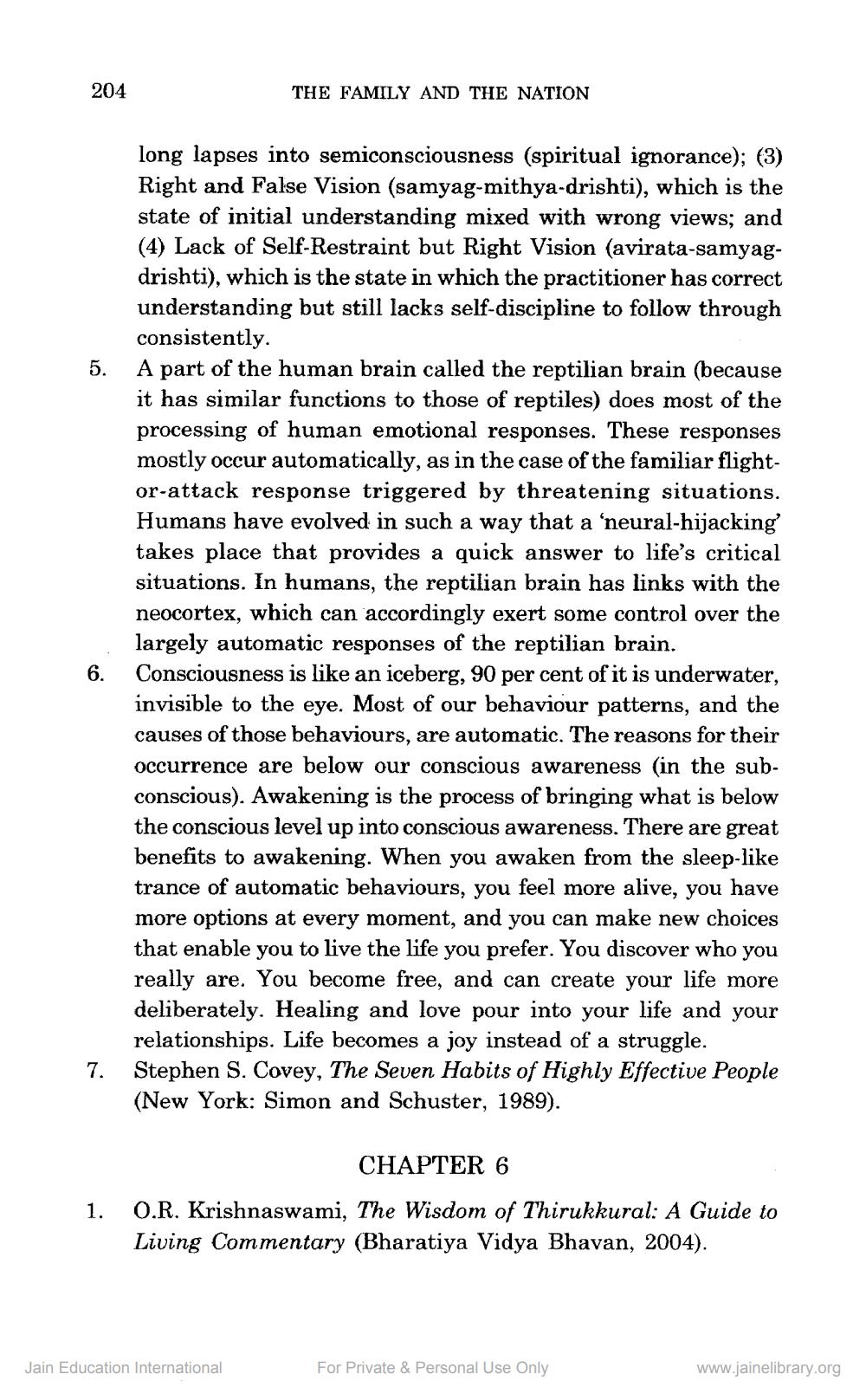________________
204
5.
6.
7.
1.
THE FAMILY AND THE NATION
long lapses into semiconsciousness (spiritual ignorance); (3) Right and False Vision (samyag-mithya-drishti), which is the state of initial understanding mixed with wrong views; and (4) Lack of Self-Restraint but Right Vision (avirata-samyagdrishti), which is the state in which the practitioner has correct understanding but still lacks self-discipline to follow through consistently.
A part of the human brain called the reptilian brain (because it has similar functions to those of reptiles) does most of the processing of human emotional responses. These responses mostly occur automatically, as in the case of the familiar flightor-attack response triggered by threatening situations. Humans have evolved in such a way that a 'neural-hijacking' takes place that provides a quick answer to life's critical situations. In humans, the reptilian brain has links with the neocortex, which can accordingly exert some control over the largely automatic responses of the reptilian brain. Consciousness is like an iceberg, 90 per cent of it is underwater, invisible to the eye. Most of our behaviour patterns, and the causes of those behaviours, are automatic. The reasons for their occurrence are below our conscious awareness (in the subconscious). Awakening is the process of bringing what is below the conscious level up into conscious awareness. There are great benefits to awakening. When you awaken from the sleep-like trance of automatic behaviours, you feel more alive, you have more options at every moment, and you can make new choices that enable you to live the life you prefer. You discover who you really are. You become free, and can create your life more deliberately. Healing and love pour into your life and your relationships. Life becomes a joy instead of a struggle. Stephen S. Covey, The Seven Habits of Highly Effective People (New York: Simon and Schuster, 1989).
CHAPTER 6
O.R. Krishnaswami, The Wisdom of Thirukkural: A Guide to Living Commentary (Bharatiya Vidya Bhavan, 2004).
Jain Education International
For Private & Personal Use Only
www.jainelibrary.org




